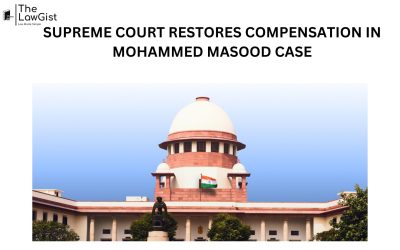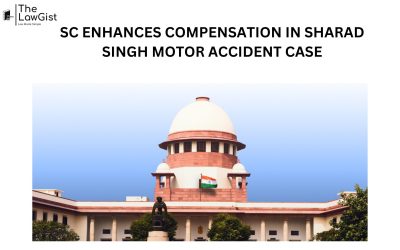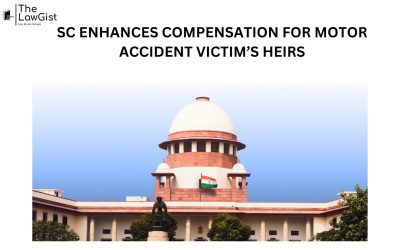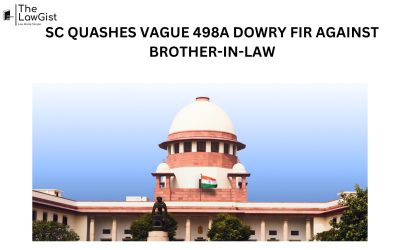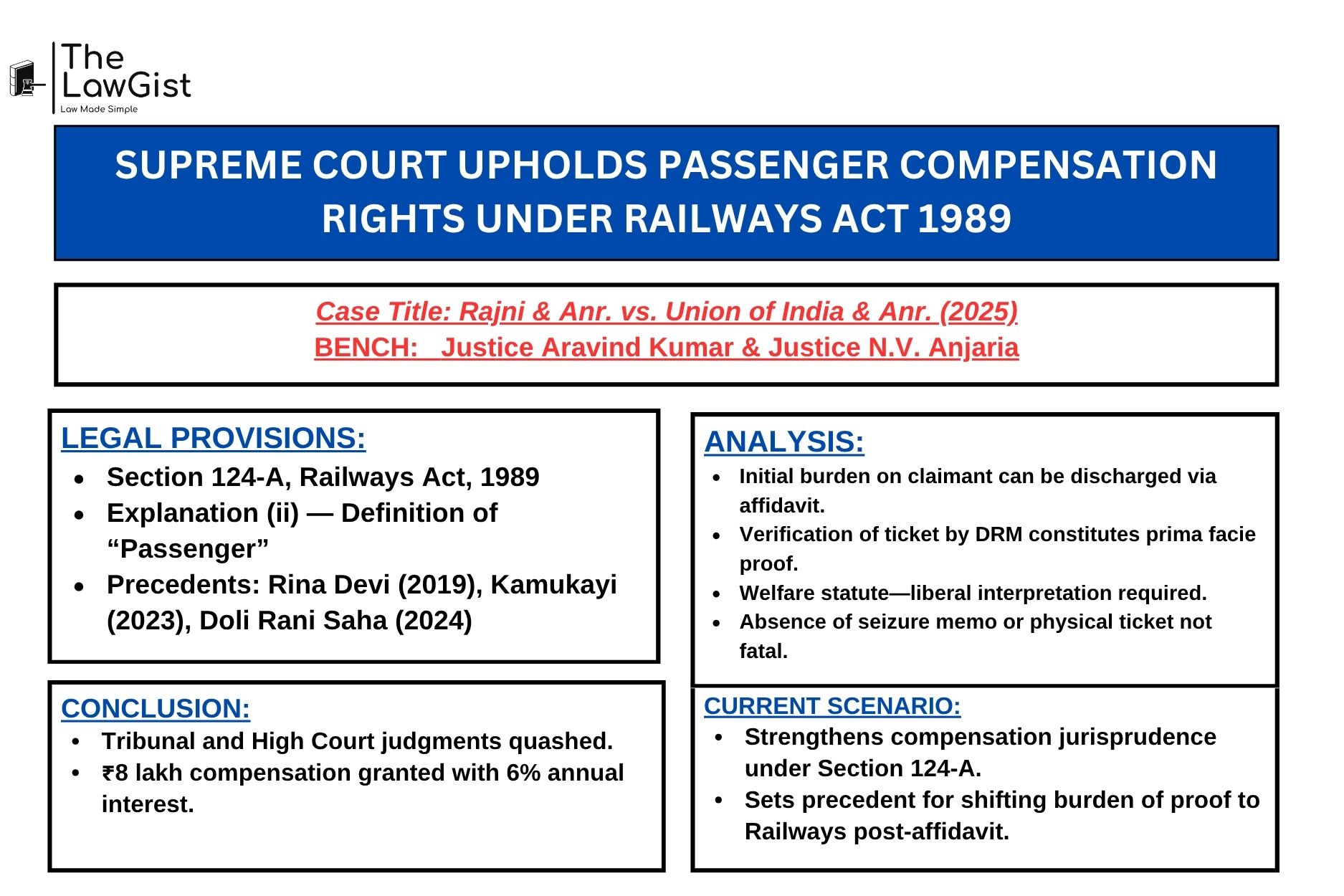
CASE SUMMARY – The Supreme Court in Rajni & Anr. v. Union of India (2025) held that failure to recover a physical railway ticket cannot defeat a genuine compensation claim under Section 124-A of the Railways Act. The deceased, who fell from a train and died, was presumed a bona fide passenger as the DRM’s verification confirmed ticket issuance. Emphasizing that such cases are governed by welfare principles and not strict criminal standards, the Court overturned the lower courts’ findings and awarded ₹8,00,000 compensation to the claimants. The ruling reinforces a liberal, humanitarian approach to railway accident claims.
SUPREME COURT UPHOLDS PASSENGER COMPENSATION RIGHTS UNDER RAILWAYS ACT 1989
| ASPECTS | DETAILS |
| Case Title | Rajni and Another vs. Union of India and Another (2025 INSC 1201) |
| Introduction | This case concerns a compensation claim under Section 124-A of the Railways Act, 1989, arising from the death of Sanjesh Kumar Yagnik in an alleged railway accident. The appeal challenged the concurrent findings of the Railway Claims Tribunal and Madhya Pradesh High Court denying compensation. |
| Factual Background | On 19.05.2017, the deceased boarded the Ranthambore Express (Train No. 12465) from Indore to Ujjain. Due to overcrowding, he was allegedly pushed out and sustained fatal head injuries. The police inquest under Section 174 CrPC recorded an accidental fall. The widow and minor son filed a compensation claim which was rejected for want of proof of a valid ticket. |
| Legal Issues | 1. Whether the deceased was a bona fide passenger under Section 124-A of the Railways Act, 1989.
2. Whether compensation can be denied merely for non-recovery of a ticket. |
| Applicable Law | Section 124-A and Explanation (ii) of the Railways Act, 1989;
Precedents — Union of India vs. Rina Devi (2019) 3 SCC 572; Doli Rani Saha v. Union of India (2024) 9 SCC 656; Kamukayi v. Union of India (2023) 19 SCC 116. |
| Analysis | The Supreme Court held that once the claimant provides credible prima facie evidence (affidavit and ticket verification), the burden shifts to the Railways. Non-recovery of a ticket or absence of seizure memo cannot defeat a legitimate claim. The welfare intent of the statute requires liberal interpretation. |
| Conclusion | The Court set aside the orders of the Tribunal and High Court, allowing the appeal. Compensation of ₹8,00,000 was awarded with 6% interest if not paid within eight weeks. |
| Current Scenario | The judgment reaffirms the welfare objective of the Railways Act and establishes that technical lapses in evidence cannot override humanitarian relief. It strengthens claimants’ rights in railway accident compensation matters. |
“Mere absence of a railway ticket shall not defeat a genuine claim when the totality of evidence establishes bona fide travel.”
SOURCE – SUPREME COURT OF INDIA
READ ALSO – Section 174 CrPC


